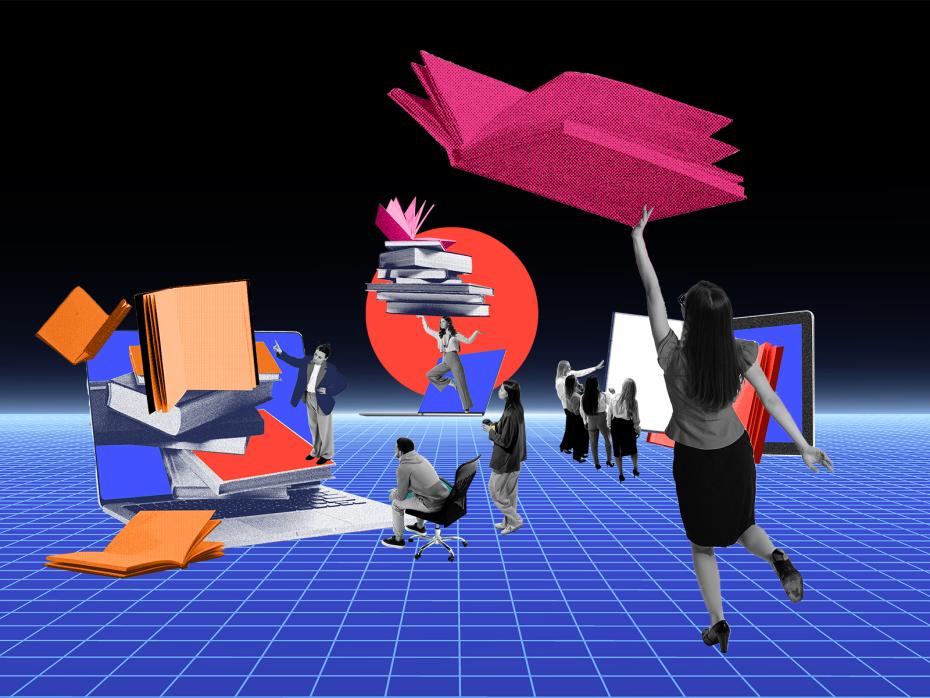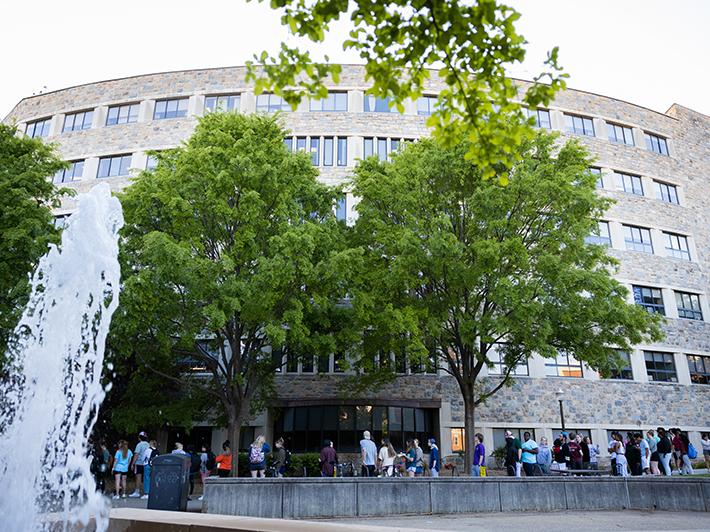When we gave students the freedom to share ideas in their own way, they filled feedback boards with practical, creative suggestions to help enhance library services. By listening closely, using time wisely and valuing staff as their greatest asset, the library team found that small, student-focused changes can have a big impact – even on a tight budget.
Here are our three key tips for boosting student satisfaction.
1. Engage with students on their terms
If you think all students like doughnuts, think again! We initially thought the best way to work with students was to invite them to a meeting and provide enticing snacks. But sign-up numbers showed they were not tempted by sweet treats.
- Integrating the university library into teaching and learning: why and how
- Information literacy is a core skill – and libraries are ideally placed to embed it
- Three reasons why university libraries are key to belonging
When we changed tack and left them to leave feedback anonymously, we found that they enthusiastically gave us their ideas on making the library services welcoming, approachable and accessible with little input from the library team.
We left a huge feedback board unattended in our main entrance and it was not long before it was full of Post-It notes with helpful information – no cake budget required. We’d tried hard to encourage student feedback but actually students are already invested in their university facilities and want to make things better for themselves and their peers.
We made several feedback boards permanent fixtures and we respond to messages promptly. We are listening and really try and act on suggestions. Requests can be small and low-cost to fix, and we appreciate them all.
Our successful face-to-face interactions with students avoided pressuring them to give feedback. Instead, it came from natural conversations about what they liked about the library and what they thought could make it better. These included pop-up libraries in academic areas, monthly two-minute beach cleans and working very closely with our Childhood and Social Care departments on a Family Fun Day, aimed at students with children.
Although we have a very small team, we feel that one-to-one appointments with students is a crucial part of the role. It enables them to engage with library staff and for the library staff to discover what students are struggling with.
The library team also volunteered at graduation ceremonies. Students were comfortable chatting to their subject librarians, who had seen them regularly from induction to dissertation.
We introduced a dedicated Assisted Library Service page on our website, which signposts library services that support an inclusive learning environment, including access to assistive technologies, personal study support and direction to a study space that suits individual student needs.
We cut our cloth to make the best use of our time but we do not compromise on student support for those who need it most.
We piloted a talking pen for students with reading difficulties and provided one-to-one training with students before they borrowed it. The pen reads text out loud in a number of languages. It has multiple dictionaries and can provide word definitions. This was so successful that we purchased a second pen so that we could have one on each campus.
In short, the students enjoyed chatting to us and we enjoyed chatting to them, but we had to create opportunities for this to happen.
2. Time is finite – use it wisely
We made the most of harnessing individual team members’ skills to free up others’ time. We encouraged a member of staff with the skills and interest to create short search strategy videos. This meant we could produce resource-specific materials at short notice, affording off-campus students the opportunity to access training resources at any time of the day without making a journey to the library.
Alongside this the team designed and maintained our own academic Moodle pages, which cover video tutorials, online inductions, subject-specific electronic resources and general help tailored to academic areas.
As a converged service, our support and information zone reception desk colleagues answer any university-related enquiries. This includes basic library questions such as lost book queries, account issues, directional questions and opening hours enquiries.
We invested in a low-cost library wand (nicknamed Dennis) that finds lost books and creates a shortcut for stock work, freeing up staff time. The “Library Clerk” is a web-based application that allows staff to upload data from our Library Management System, such as missing stock. This allows library staff to use the “wand” to quickly find lost books or books shelved incorrectly.
All of these small student-focused changes allowed our team the time to address more pressing priorities, invaluable during these financially challenging times.
3. Our staff are our biggest asset
Being a small team, it is easy for us to work together to support the students. The team knows that the student experience is paramount and enjoys going that extra mile to help people. Of course, this is not something we can demand of people but it’s good to recognise those qualities in the team and support their ideas when wanting to work in different ways.
As a close team, we recognise that social events or celebrations are important. This is not rocket science, but a happy team equals happy students. Maintaining student satisfaction can be about big projects and budgets but is also about relationships, connections, friendship and support. A team that feels supported may want to give support more freely to others.
Karen Lloyd is university librarian and Ruth Clark is academic liaison librarian, both at the University of Chichester.
The university is shortlisted for Outstanding Library Team of the Year in the 2025 Times Higher Education Awards. A full list of shortlisted candidates can be found here.
If you would like advice and insight from academics and university staff delivered direct to your inbox each week, sign up for the Campus newsletter.




comment